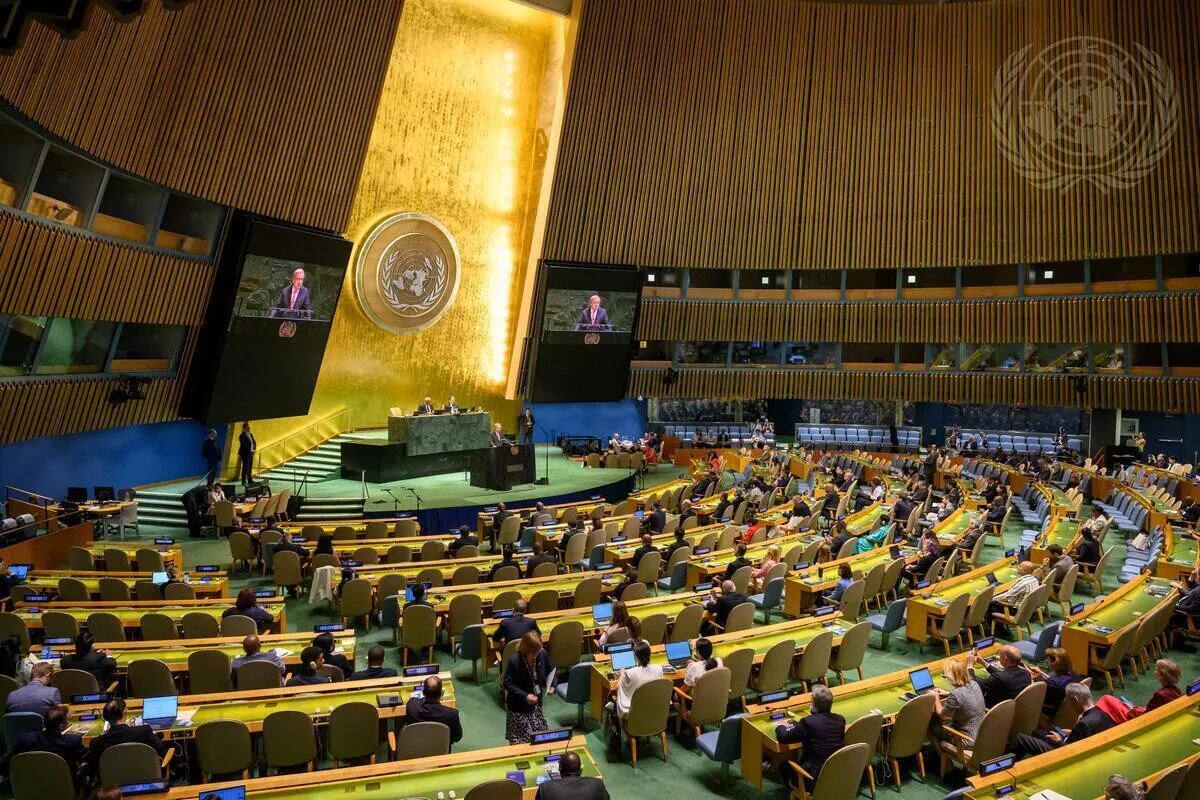
Since its establishment in 1945, the United Nations General Assembly (UNGA) has served as the annual forum where world leaders convene to deliver their national statements. This year marks both the 80th anniversary of the UN and the Assembly’s 80th session. To mark this occasion from September 23 to 29, world leaders from its 193 member countries gathered at the UN headquarters in New York. The theme of this year is ‘Better together: 80 years and more for peace, development and human rights’. The core role of the UN will underscore the call for renewed global commitment to multilateralism, solidarity and shared action for people and the planet.
This year Nepal did not have representation from the highest level in the UNGA after the fall of the previous, K.P. Sharma Oli-led government, which had planned to visit New York. Following the Gen-Z protest, and the new Prime Minister Sushila Karki was busy with domestic priorities, and was unable to appoint the foreign minister on time to participate in the UNGA.
As a result, Ambassador Lok Bahadur Thapa, who is the Permanent Representative of Nepal to the UN in New York, led the Nepali delegation. It’s the first time in years that a Permanent Representative has been tasked with leading Nepal’s UNGA delegation.
Although having the New York mission lead Nepal’s UNGA is not ideal in normal times, the current political situation made it necessary. Ambassador Thapa is not only the Permanent Representative of Nepal to the UN in New York, but he is also the President of the 2026 session of the Economic and Social Council (ECOSOC). Thapa was elected as the President of ECOSOC for its 2025-2026 session on July 31, 2025, which was one of the great achievements of Nepal in more than seven decades of its UN journey. With 35 years of diplomatic experience, Thapa led the Nepali delegation at the 80th UNGA.
Addressing the UNGA session on September 29, Ambassador Thapa emphasised the need for global solidarity to confront unprecedented challenges while sharing Nepal’s own political transformation driven by youth movements. Thapa said the world stands at a crossroads, facing the perils of militarization, climate catastrophe, inequality, and weakened multilateralism. He urged member states to recommit to the UN’s founding values of peace, justice, and human dignity.
Ambassador Thapa highlighted Nepal’s recent political upheaval, sparked by mass youth-led protests earlier this month. “Nepali youth, particularly Gen-Z, took to the streets with a clear and compelling voice for change,” he said, noting their demands for transparency, accountability, justice, and jobs.
The movement, though marred by violence and destruction, has ushered in historic change. Nepal now has its first female Prime Minister, a former Chief Justice, leading an interim government that will guide the country to general elections scheduled for March 5, 2026. “The only viable road ahead [for Nepal] is that of peace, democracy, and inclusive development,” Thapa affirmed.
Marking Nepal’s 70 years of UN membership, Thapa underscored his country’s consistent contributions to peacekeeping, Nepal is the world’s largest troop-contributing nation to UN peacekeeping, and highlighted its advocacy on disarmament, and its leadership in promoting the rights of Least Developed and Landlocked Developing Countries.
He stressed that multilateral institutions must deliver not just promises but tangible results, warning that no single nation can solve today’s global crises alone. “Confidence in multilateral frameworks is weakening. This is a clear and urgent call to reassess, strengthen, and revitalize them,” he said.
Turning to international crises, Thapa expressed deep concern over the wars in Ukraine, Gaza, and Sudan, calling for peace, justice, and inclusive development. He reiterated Nepal’s support for a two-state solution in the Middle East and appealed for the immediate release of Bipin Joshi, a Nepali student held hostage by Hamas since October 2023.
He also condemned rising military expenditures—peaking at $2.7 trillion in 2024—while development cooperation lags, leaving millions vulnerable worldwide.
Climate change was a central pillar of Nepal’s message. Thapa described the melting Himalayan glaciers as a direct existential threat, noting Nepal’s convening of the Sagarmatha Sambaad earlier this year, which produced the “Sagarmatha Call for Action.” Nepal has submitted its third Nationally Determined Contribution (NDC3), pledging to cut emissions by 27% and expand renewable energy eightfold by 2035.
The address marked Nepal’s strong positioning as both a country navigating internal democratic transformation and an advocate for fairness, equity, and solidarity in global governance.